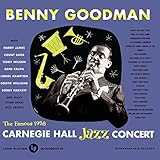| | Origin and Chart Information |
| The song lost favor for a while but was revived by Benny Goodman’s trio in 1935 and performed by Goodman’s big band at their famous Carnegie Hall Concert in 1938. | |  | - Sandra Burlingame |
|
| Rank | 288 | | | Words and Music | Phil Boutelje
Richard A Winfree |
|
| | “China Boy” was written in 1922 by Dick Winfree and Phil Boutelje. Winfree was a member of the west coast dance band led byArt Hickman, and Boutelje was a pianist and author who arranged for and played with thePaul Whiteman Orchestra before becoming director of Paramount Pictures and United Artists Studios. He scored for films and was twice nominated for Academy Awards. The song was introduced in vaudeville by Henry E. Murtagh and became very popular with Dixieland groups, such as the McKenzie/Condon Chicagoans, Stephane Grappelli’s Hot Four, and Muggsy Spanier.Paul Whiteman’s 1929 recording, which was arranged by Lenny Heyton and featured a solo by Bix Beiderbecke, popularized the tune. The song lost favor for a while but was revived by Benny Goodman’s trio in 1935 and performed by Goodman’s big band at their famous Carnegie Hall Concert in 1938.Teddy Wilson recorded it as a piano solo in 1941. The song appeared in the 1940 filmStrike Up the Band and in 1955’sThe Benny Goodman Story. Over a period of time the song charted several times: Red Nichols and His Five Pennies (1930, #18 Benny Goodman Trio (1936, #9)
| | | | | | | Oddly, “China Boy” was published in the same year that the Cable Act was passed. Previously, a woman lost her U.S. citizenship if she married a foreigner. The Cable Act guaranteed citizenship to women as long as they married an alien eligible for naturalization which excluded Asians. The law was amended in 1931 to include Asians and was repealed in 1936. After the hot music of the twenties and the stock market crash of 1929, the nation was ripe for more soothing music. Although this fox trot had a bouncy feeling to it, it was almost a lullaby: China boy, go sleep
Close your eyes, don’t peep
Sandman soon will come
While I softly hum.
“China Boy” has been featured in recordings byLouis Armstrong,Fats Waller, Lionel Hampton,Charlie Parker,Oscar Peterson, Sidney Bechet,Django Reinhardt, and vocalist Mildred Bailey. The Xavier Cugat Orchestra performed it as a mambo. More recent recordings of the song are by saxophonist Ken Peplowski (1999), pianists Ralph Sutton (1991) and Eddie Higgins (2003), trumpeter Randy Sandke (1993), and saxophonist Steve Wilkerson (2001). |
|
|
|
The “Austin High Gang” was a term coined in the late 1930s for a group of young, enthusiastic, white jazz performers from the Chicago area. Eventually the term included non-Austin High musicians and sometimes even non-Chicago musicians. One of the earliest recordings of several of the “Gang” was a session organized by guitarist Eddie Condon in December, 1927. Their recording of “China Boy” turned the tune into a standard part of the repertoire of Chicago Jazz. Condon’s group included some future jazz stars: Jimmy McPartland (cornet); Bud Freeman (tenor sax); Joe Sullivan (piano); and Gene Krupa (drums). Cornetist Muggsy Spanier was a non-Austin High Chicagoan, but he hung out and played with the Austin High crew. One of his best recording sessions was in 1940 in the company of soprano sax marvel Sidney Bechet, ex-Duke Ellington bassist Wellman Braud, andTommy Dorsey’s guitarist Carmen Maestren. The quartet’s version of “China Boy” is a perfect example of small-band jazz, and Bechet’s solo is dazzling. Chris Tyle - Jazz Musician and Historian |
| Comment Policy - Your comments are welcome, including why you likethis tune, any musical challenges it presents, or additional background information.
- Jazz musicians, fans, and students of all ages use this website as an educational resource.As such, off-topic, off-color, unduly negative, and patently promotional comments will be removed.
- Once submitted, all comments become property of JazzStandards.com.By posting, you give JazzStandards.com permission to republish or otherwise distribute your comments in any format or other medium.JazzStandards.com reserves the right to edit or remove any comments at its sole discretion.
|
|
|





